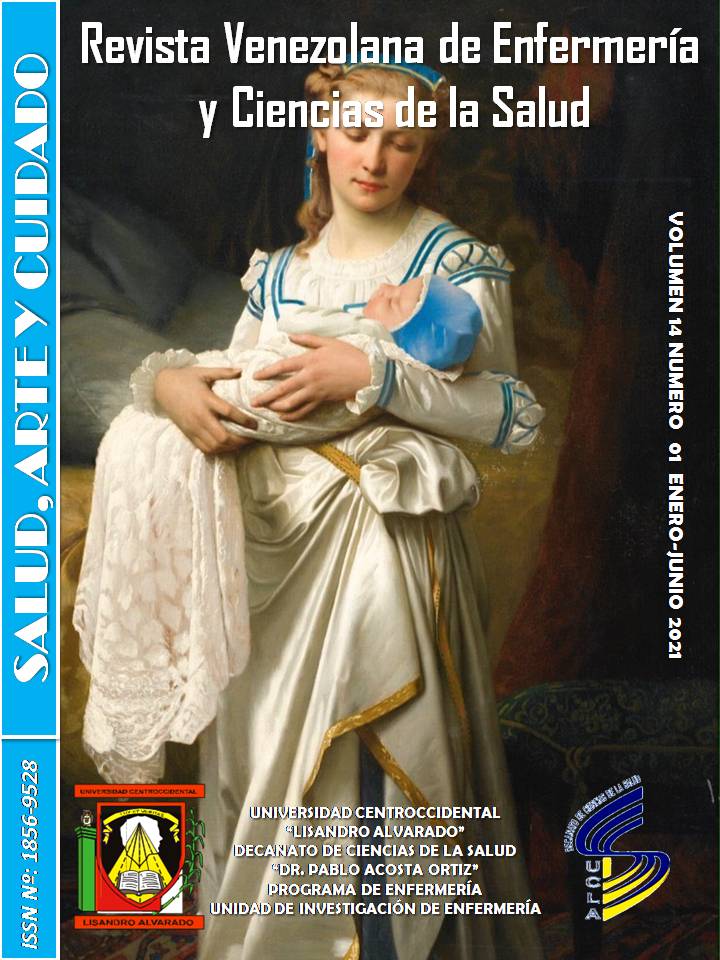Change management from an onto-hermeneutic perspective in the university organizations context
DOI:
https://doi.org/10.5281/zenodo.6972704Keywords:
change management, hermeneuticAbstract
At present, it is necessary, in a wide and forceful way, to obtain a series of information that allows reordering the spectrum of the managerial kaleidoscope to which he was clinging to a certain temporality and specialty. This contrasting of ideas in a dialectical mode has facilitated a neo-vision of the expeditious and tacit reality of the new form, vision and mission of management applied to the new vision of the contemporary world. In this sense, the present essay tries to expose in detail the importance of organizational changes, which are understood as the consequences of the dialectic or the transformations of the dialecticity to which organizations are subject from an onto-hermeneutic perspective, centered on the Inspiration of the epistemology that aspires an understanding of the phenomenon or the fact studied from a perspective that does not alter the essence of the analyzed thing, but that the unaltered maintenance of the reality of the fact in itself, allows the access to a knowledge as shown for to be able to understand and then be able to transform.
Downloads
References
Tripier, B. (2002). Resistencia al cambio un peligro manejable. El Nacional. P. E/5.
Drucker, P. (2002). Los Desafíos de la Gerencia Para El Siglo XXI. Barcelona. España. Editorial Norma.
Carroll, A.B. (1991b): “The pyramid of corporate social responsibility: Towards the moral management of organizational stakeholders”, Business Horizons, 34, pp. 39-48.
Conill, J. (1998). Ética de la Sociedad Civil. En: Conversaciones de Adela Cortina y Jesús Conill. Democracia Participativa y sociedad civil. Una ética empresarial.
Ferrell, M y Fraedrich, R (2003). Transparencia y ética pública. Año 7, Número 16, Edit. Primavera 2003.
Capra, F. (1981) El punto crucial. Ciencia, sociedad y cultura naciente. Buenos Aires, Editorial Estaciones
Osorio, D (2008). El Poder del Pensamiento Creativo. Revista Dominical Motivare.
Páez, José (2004). Gerencia del Cambio. Editado por Revista Paréntesis. Valencia.
Páez, J. (2007). Complejidad Organizacional de la Nueva Gerencia Gerencia en Acción. Editado por El Carabobeño. Valencia.
Orden, A. De La (1997) "Desarrollo y validación de un modelo de calidad universitaria como base para su evaluación. Revista Electrónica de Investigación y Evaluación Educativa. Volumen 3. Número 1.
Diccionario de Filosofía Ferrater Mora (1979). Alianza Editorial, Madrid, España.
Crocker, D. (2001). Los Problemas Éticos Claves. (Ponencia) En: Hacia una Ética del Desarrollo, Foro realizado en Caracas, 22-23/09/2001.
Drucker, P. (1993). Gerencia para el Futuro. Colombia: Editorial Norma
Drucker, Peter (1997). Tiempo de Desafíos. Tiempos de Reinvenciones Editorial Hermes D.F., México.
Drucker. P (2000), La comunidad del futuro. España. Barcelona: Ediciones Granica S.A.
Ferrer, J. (2004). IX Congreso Internacional del CLAD sobre la Reforma del Estado y de la Administración Pública. Madrid, España, 2 - 5 Nov. 2004.
Morin, E (2000). Inteligencia de la Complejidad. Bases para una reforma Educativa. Buenos Aires: (Ediciones Nueva Visión)
Sallenave, J. (1994). La gerencia integral. Colombia: Grupo Editorial Norma.
Sanjuán, M. (2007). La Complejidad en la Ciencia. Grupo de Dinámica No. Lineal y Teorías del Caos. [Línea Virtual]
Sérieyx, H. (1994). El Big Bang de las organizaciones (M. Lantieri, trad.). Argentina: Ediciones Granica S.A., pp. 81 – 123.
Published
How to Cite
Issue
Section

This work is licensed under a Creative Commons Attribution-NonCommercial-ShareAlike 4.0 International License.
Derechos del/de autor/es a partir del año de publicación
Esta obra está bajo la licencia:
Creative Commons Reconocimiento-NoComercial-CompartirIgual 4.0 Internacional (CC BY-NC-SA 4.0)
Las opiniones expresadas por los autores no necesariamente reflejan la postura del editor de la publicación ni de la UCLA. Se autoriza la reproducción total o parcial de los textos aquí publicados, siempre y cuando se cite la fuente completa y la dirección electrónica de esta revista. Los autores(as) tienen el derecho de utilizar sus artículos para cualquier propósito siempre y cuando se realice sin fines de lucro. Los autores(as) pueden publicar en internet o cualquier otro medio la versión final aprobada de su trabajo, luego que esta ha sido publicada en esta revista.







